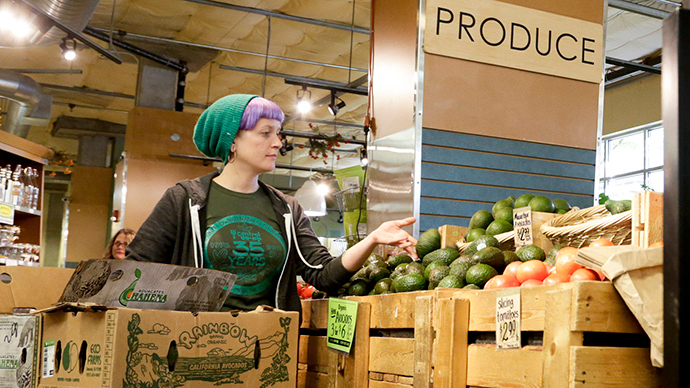EU poised to let in new GM products, introduce non-health opt-outs

The EU is expected to permit over a dozen new genetically modified agricultural products into its market. Individual countries would reportedly be able to ban GM products, as long as they don’t challenge the science behind authorizations.
At the moment EU imports around 58 GM products, mostly from the US. On April 22 at a meeting of the Commissioner's College it is poised to introduce 13 more, including five soybean varieties, three GM maize, two oilseed rape and three cotton, Feed Navigator reports.
The new products have passed through the EU's scientific assessment and risk management process. Their introduction would break an 18-month import approvals deadlock.
The approval comes amid foreign pressure on European officials, Marco Contiero, Greenpeace EU’s agriculture director, told the Guardian.
“With transatlantic trade talks ongoing, pressure has been mounting from the biotech industry and the US government to break open the EU market to GM imports and to speed up authorization procedures,” he said.
The newspaper says 17 rather than 13 new GM products would be allowed into EU markets.
The new European Commission rules say that future authorizations would automatically follow approval of new strains by the European Food and Safety Agency, streamlining the process, indicates a proposed amendment published by Eurpolitics, the European affairs publisher. But they would give individual countries the right to opt out of new products the way they can now opt out of GM seeds meant for cultivation.
READ MORE: ‘Values, not science’: British MPs attack EU anti-GM policy, demand power to regulate
“It will be up to each member state wanting to make use of this ‘opt-out’ to develop this justification on a case-by-case basis, taking into account the GMO in question, the type of measure envisaged and the specific circumstances at national or regional level that can justify such an opt-out,” the draft said.
But the justification may not be based on health and environmental issues under the new rules, as those concerns would have already been addressed by EU’s checks. Opposition from individual countries is “usually not based on science but on other considerations reflecting the societal debate existing in the country,” the draft explained.
The amendment is reportedly strongly supported by EU president Jean-Claude Juncker and is expected to be adopted. Biotech industry groups however are opposed to the measure.
“We fear that this approach would reverse the achievements of the European customs union and the single market,” Gloria Gabellini, deputy secretary general of the Coceral grain importers federation, told The Guardian. “We have a single market so if you import a product, it must be entitled to free circulation.”
Greenpeace on its part said the restriction on what can justify individual bans compromises the national government’s ability to protect their citizens and environment when science behind authorization was contested.












